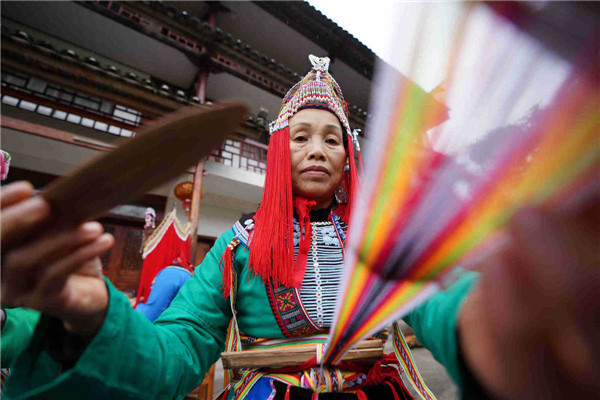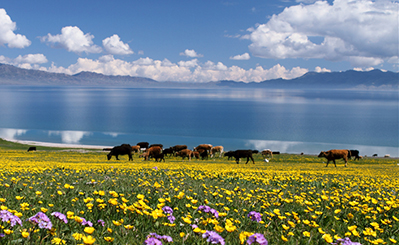Ethnic groups reap benefits of growth and unity

A woman from the Yao ethnic group makes traditional cloth to celebrate Spring Festival in Guangxi, in January. HUANG YONGDAN/FOR CHINA DAILY
Inheriting culture
Xi has also stressed on a number of occasions the need to ensure the preservation of ethnic groups and for their culture to be handed down.
During his trip to Xinjiang in July, he watched Epic of Manas, a performance by the Kirgiz ethnic group staged at the regional museum.
Xi said the show was emotionally touching, and that such examples of cultural heritage are precious treasures for ethnic groups and for China. More work must be done to safeguard the show and ensure it continues, he said.
Addressing a high-level conference on ethnic affairs last year, Xi highlighted the need to ensure that languages are protected, including those of different ethnic groups, and to respect and ensure the rights of such groups in learning and using their own languages.
Zhao Yong, deputy head of the National Ethnic Affairs Commission, said at a news briefing this month that it is common practice for primary and high schools in areas populated by ethnic groups to set up classes to teach the languages spoken by these groups.
"People should be able to learn and use their own languages freely," he said.
Of China's 56 ethnic groups, 53 have their own languages, while 22 groups use a total of 28 written languages. To better preserve and promote ethnic languages, a special database has been created to record and study them, Zhao added.
China will focus on developing industries, infrastructure and environmental protection in promoting high-quality development in regions inhabited by ethnic groups, Zhao said.
These regions will continue to pose difficult challenges to the nation's modernization drive, just as the poverty alleviation campaign did in the past, he said, adding, "But we have the confidence and capacity to tackle such challenges."
 Attractions
Attractions Dining
Dining Culture
Culture